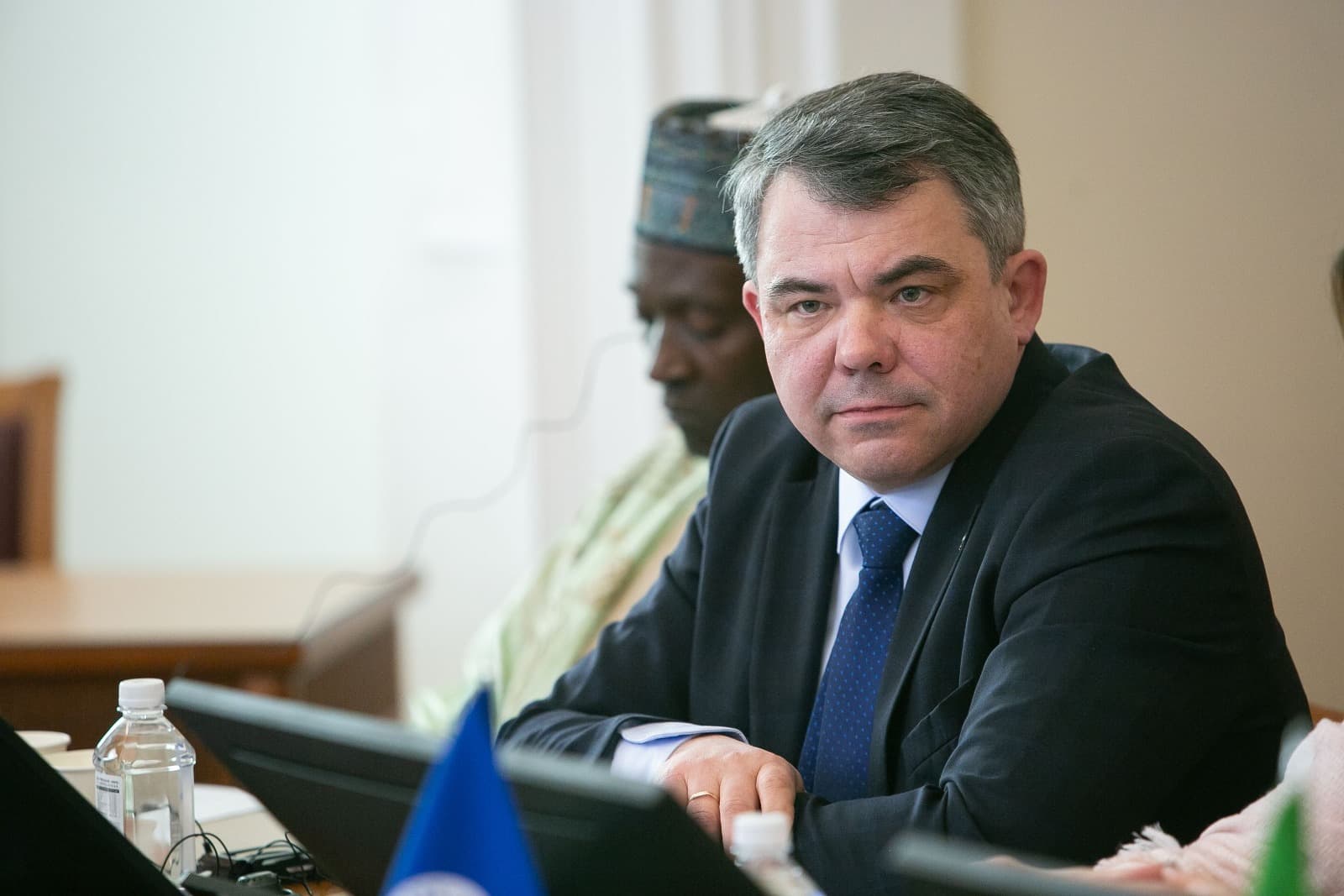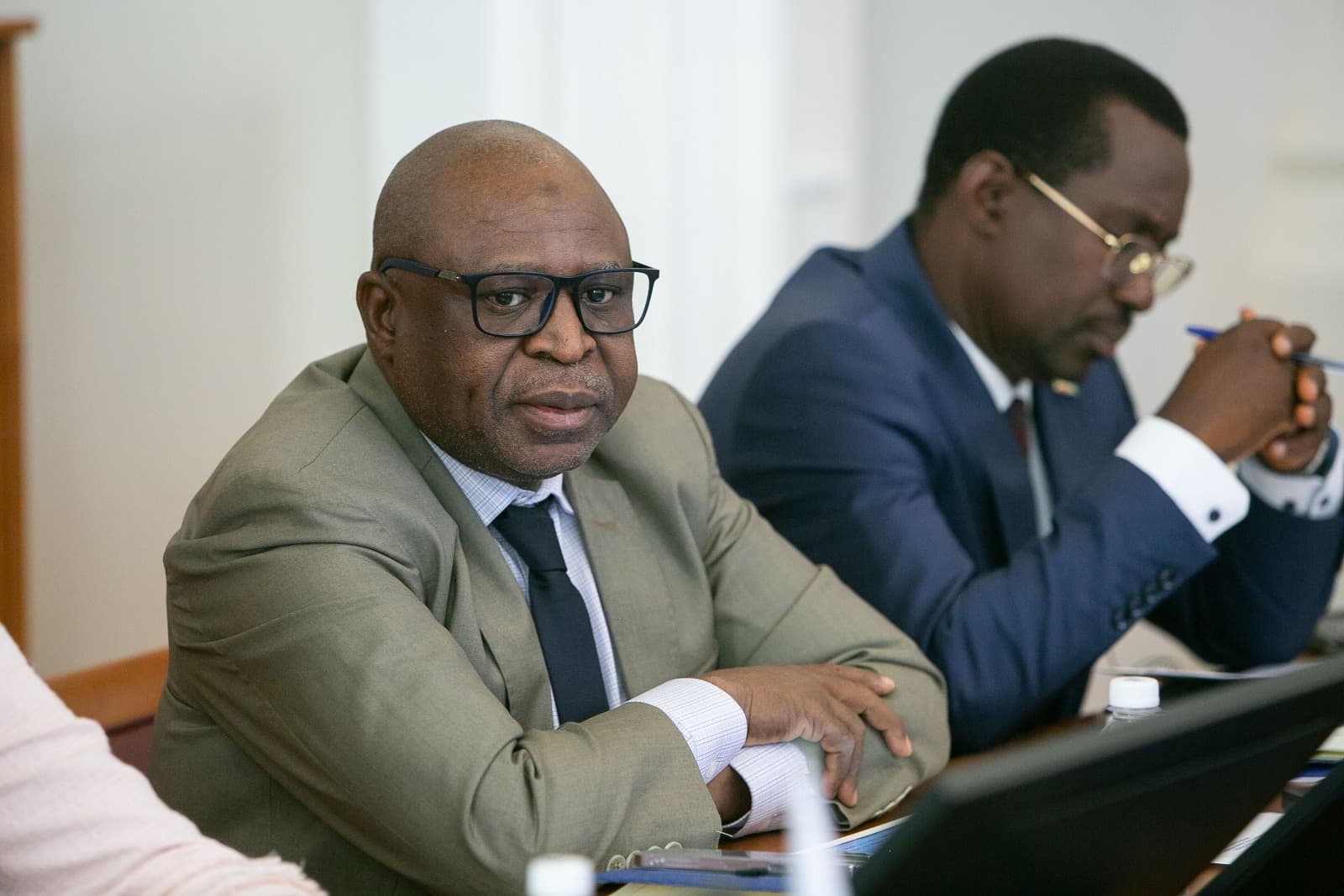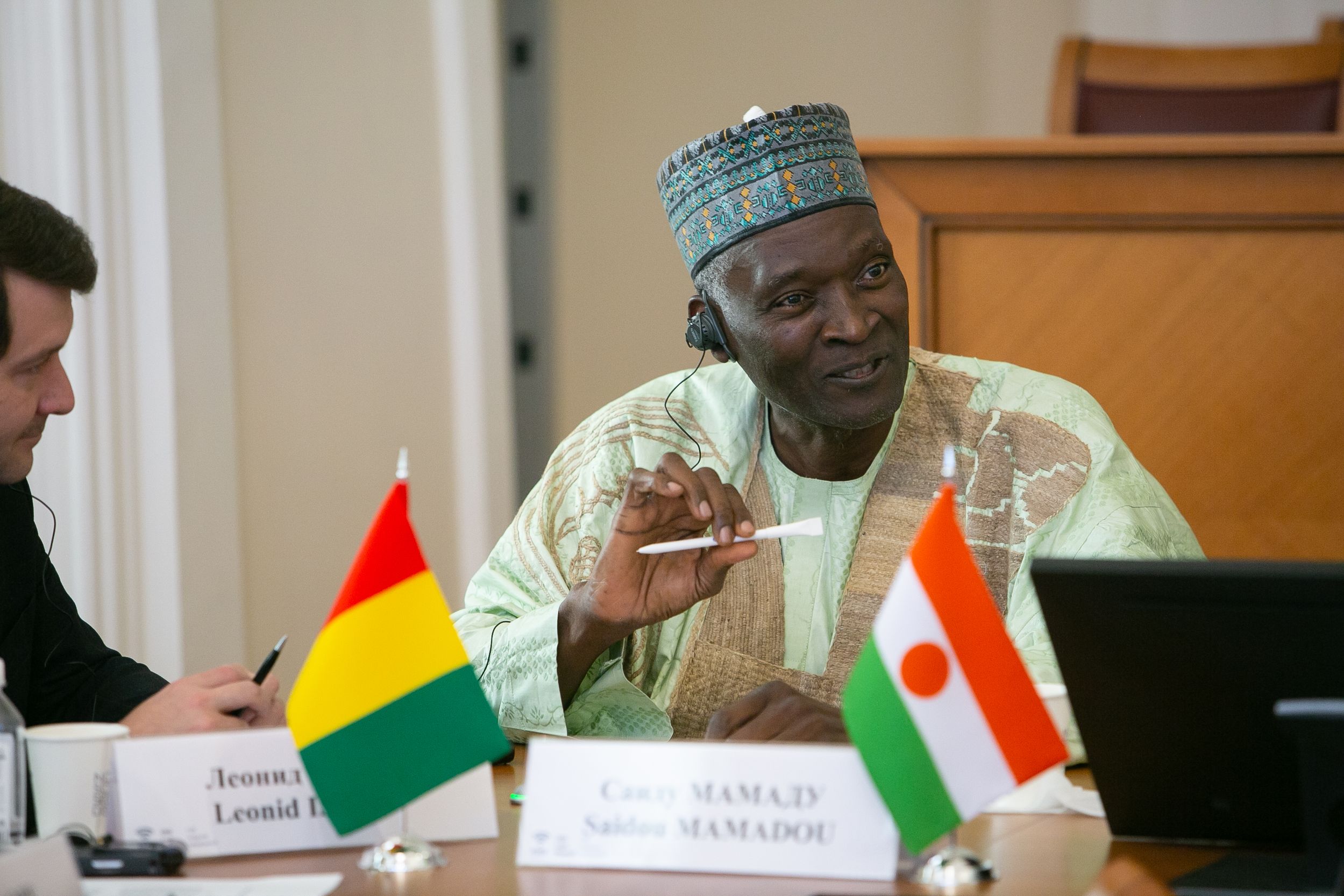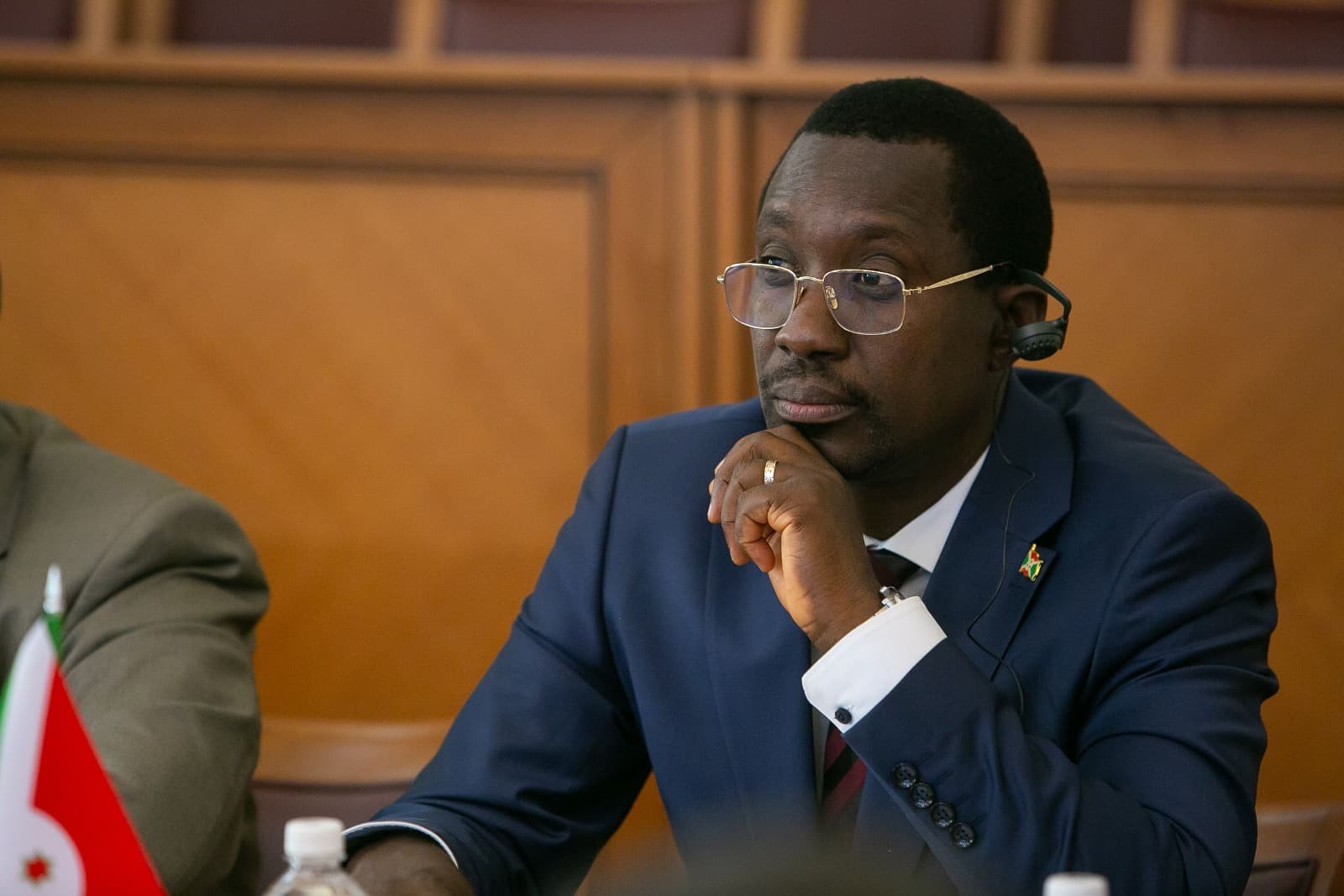‘We Have Promising Opportunities with Africa, and It Is Important to Foster Cooperation’
A Strategic Session focusing on cooperation between Russia and African countries in the sphere of higher education was held at HSE University's building on Pokrovsky Bulvar. The event was attended by representatives of HSE University, rectors of other Russian universities, and ambassadors and ministers of higher education from several African states.
During the Strategic Session initiated by the Faculty of Social Sciences and the Multilateral Strategic Projects Office, the discussion centred on strengthening and broadening cooperation in higher education and scientific research between countries of the African continent and Russia. Among the invited guests was the Minister of Higher Education and Science of the Republic of Niger, making his first visit to our country.

'Russia's cooperation with African countries is expanding across all areas, including the sphere of higher education,' said Victoria Panova, Vice Rector of HSE University. 'Approximately 35,000 students from Africa are currently studying at Russian universities, and this number has grown in recent years. We observe the same trends at HSE University and currently have around 300 students from 33 African countries.' The Vice Rector further observed that the most sought-after areas of study include economics, information technology, mathematics, international relations, and creative industries.

Dmitry Pyshny, Deputy Minister of Science and Higher Education of the Russian Federation, Professor, and Corresponding Member of the Russian Academy of Sciences, also noted the significant progress in the development of cooperation with African countries over the past few years. 'The changes taking place worldwide directly impact the realms of science and higher education, necessitating continuous updating and adaptation to the new conditions of our national economies,' he said. Therefore, according to the Deputy Minister, it is crucial to consistently monitor the implementation of joint projects and explore new promising avenues of collaboration.
'In alignment with the foreign policy concept endorsed by the Russian President in 2023, strengthening the Russian-African cooperation stands as one of our country's priorities. In this context, the Ministry of Education and Science places significant emphasis on fostering educational and scientific connections with African nations. Therefore, we continue the annual allocation of quotas for the education of citizens from African states at our universities; for the academic year 2022/23, 2,306 places were allocated, and for 2023/24, the number increased to 4,720 places,' Dmitry Pyshny stressed.

According to Bouréma Kansaye, Minister of Higher Education and Scientific Research of the Republic of Mali, his country is interested in fostering scientific cooperation with Russia, including potential transfer of expertise and technology. 'We have numerous institutes in Mali, and we maintain strong connections with educational networks across Africa and Russia. Our country holds significant prospects; therefore it is crucial for us to foster dynamic and fruitful cooperation,' the Minister said. Africa has the world's youngest population, with 90% of its inhabitants between the ages of 15 and 30. In Mali, 47% of the population is under the age of 15. 'This highlights the importance of training young people. For us, this is one of the primary challenges,' Bouréma Kansaye explained. Prof. Kansaye has first-hand knowledge of Russia, as he pursued his studies here and earned a Candidate of Sciences degree.

Saidou Mamadou, Minister of Higher Education and Science of the Republic of Niger, expressed gratitude for the invitation to participate in the Strategic Session at HSE University in Moscow. Drawing attention to the fact that his country is currently undergoing a transitional period, he stressed that partnership with Russia should have an exceptionally positive impact on both the country and its people.
'In our country, two priority areas are the education and training of specialists in engineering, as well as in science and technology, particularly in the field of energy,' according to Prof. Saidou Mamadou. 'We have large reserves of uranium, and we aim to address the issue of electricity supply in the country. In addition, we need specialists in the oil and gas industry and in medicine.'

Dr François Havyarimana, Minister of National Education and Scientific Research of the Republic of Burundi, expressed gratitude, like his colleagues, for the warm welcome he received in Russia. 'We are pleased to be among you to share our experience in the field of higher education. Our country would like Russian faculty members to come over to Africa, particularly to Burundi, to engage in collaborative research,' the Minister said.

In Guinea, teaching is at a good level, yet steps need to be taken in the sphere of research, according to Sékou Traoré, Deputy Minister for Higher Education of the Republic of Guinea. Since 2011, Prof. Traoré has held various positions at Guinea's Ministry of Education.
'We need to advance the development of the scientific sphere and the sphere of innovation,' Prof. Traoré explained. 'We invite Russian specialists to come to work in Guinea. We aim to establish adequate laboratories so that students can apply their knowledge in practice, while also providing Russian specialists in our country with the necessary resources for university development.'
During the discussion, special emphasis was placed on the role of universities in fostering and expanding connections between Russia and Africa, highlighting the necessity for mutual studies of language and culture to ensure the success of further cooperation. The session participants expressed interest in developing programmes for learning the Russian language at African universities, as well as expanding opportunities for training in Russia conducted in various foreign languages.
According to HSE Vice Rector and Director of the BRICS Expert Council Victoria Panova, a positive image of both Russia and Russian education has been formed in African countries over the years. 'This serves as an excellent foundation upon which we can and should strengthen partnerships and implement joint large-scale educational projects of strategic importance. Such cooperation can take place in the framework of bilateral relations as well as multilateral formats,' Victoria Panova said. She added that this year, Russia will host a series of educational events as part of its BRICS presidency. 'We intend to actively engage our African partners in these events, both in the BRICS format and in the BRICS+ format. This May, we will be hosting the BRICS Academic Forum, and in September, the BRICS+ International School with the participation of young African leaders. We invite all interested parties to attend,' the Vice Rector stressed.
During the Strategic Session, further steps were outlined aimed to strengthen cooperation across various formats. Thus, rectors of African universities will attend the anniversary 25th Yasin (April) International Academic Conference on Economic and Social Development to be held in Moscow from April 23 to 26, 2024.
See also:
HSE’s Education Observatory Establishes Research Network Across All BRICS Countries
The International Education Observatory initiative, launched by HSE University to focus on expert evaluation, analytics, and joint scientific research, has successfully completed the formation of a research network across all BRICS nations. South Africa was the final link, with the University of Pretoria and the University of the Witwatersrand joining experts from Russia, China, India, and Brazil.
The Future Through the Eyes of Young Scientists
A delegation of teachers and students from the HSE Campus in Nizhny Novgorod participated in the IV Young Scientists Congress and the IX BRICS Young Scientists Forum held in Sochi. These two key events of the Russian Decade of Science and Technology brought together representatives of the academic and university community, state corporations, private businesses, and public organisations to envision the future of Russian science through the lens of the younger generation.
‘We Need Our Own AI Models Trained on Local Data’
The digitalisation of the economy and the rapid development of artificial intelligence (AI) technologies pose new challenges for antitrust authorities worldwide. Major players in the AI market, equipped with significant resources, can block new entrants and set anti-competitive prices. Additionally, the use of AI raises increasingly complex ethical questions for which the global community has yet to develop answers. These and other issues were discussed at the Third BRICS+ Digital Competition Forum.
‘It Is Hard to Imagine High-Level Interpretation Being Entrusted to a Machine’
In 2024, Russia chairs BRICS, an international organisation comprising nine countries. Throughout the year, dozens of forums, working group meetings, and BRICS sessions took place across various Russian cities. As an interpreter, Ksenia Prosyukova, Associate Professor at the HSE School of Foreign Languages and Candidate of Science (PhD) in Pedagogy, participated in several BRICS events. In an interview, she discussed the personal responsibility of working at high-level events, the challenges and prospects of her profession, and how HSE University trains in-demand translators.
HSE Presents an Analytical Handbook on Africa for African Leaders
The HSE University Centre for African Studies has presented an English-language expert-analytical handbook titled ‘Africa 2025: Prospects and Challenges.’ For the first time, Russian experts have prepared a comprehensive work aimed at an African audience rather than Russian readers. The handbook incorporates a significant amount of new data and introduces new approaches for assessing development prospects. The presentation took place in Sochi on November 9, 2024, during the First Ministerial Conference of the Russia–Africa Partnership Forum.
BRICS Representatives Discuss the Development of Statistics in Member Countries
The significance of statistics in today’s digital age has reached a new level. Many decisions at government and business levels are based on data analysis. However, there is a mixed perception of official statistics, which negatively affects trust in public policies. The heads of BRICS statistical agencies discussed this issue and ways to address it at a forum in Kazan, where a representative from HSE University also participated in the event.
HSE Experts Help to Implement Science and Technology Foresight in Africa
The population of African countries is growing so fast that the continent is likely to play a significant role in global development. However, the socio-economic situation in African States remains dramatic. Access to high-quality education, the development of science and high technologies are crucial in addressing these challenges. Professor Alexander Sokolov, Head of the UNESCO Chair on Future Studies at HSE University, spoke at the International Forum of UNESCO Chairs and Partners ‘Transforming Knowledge for Africa’s Future.’ The event took place in Addis Ababa, Ethiopia.
‘Geographical Distance No Longer a Problem’: ISSEK Fosters Cooperation with Think Tanks in BRICS Countries
In September, the HSE Institute for Statistical Studies and Economics of Knowledge hosted an international working meeting with representatives from Brazilian, Egyptian, and Indian think tanks. The participants discussed opportunities for cooperation, including joint surveys, comparative studies, databases, and publications on foresight, technology, and innovation. It was also decided to draft a multilateral agreement to establish the BRICS Foresight Association.
HSE Experts Take Part in the First International Workshop on Technological Sustainability of BRICS
On September 19–20, Skoltech hosted the First International Workshop on Technological Sustainability of BRICS: University-Industry Partnerships, organised jointly with HSE University Human Capital Multidisciplinary Research Center. The meeting was held as part of the BRICS working group on technology foresight and science and technology studies.
HSE Researchers to Develop BRICS Exchange System Together with Chinese Experts
HSE University International BRICS Competition Law and Policy Centre and the Competition Policy and Assessment Centre founded by the State Administration for Market Regulation of China signed a cooperation agreement. The parties agreed to come up with proposals for the development of exchange trade in goods and raw materials between Russia, China, and the BRICS countries.


